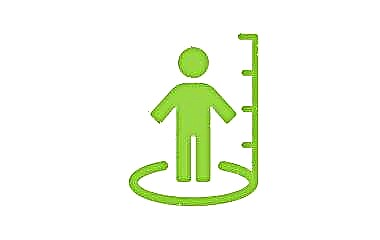Little children can teach us a lot as adults. If you or your environment has a child, take a closer look at him. You can get exceptionally new and interesting knowledge. The popular American psychologist and writer Adam Mann advises paying more attention to children and observing their behavior and actions. He believes that the lessons they teach us will help make our own lives more effective and meaningful.

Sound and healthy sleep is the key to good rest and excellent performance
If we observe babies, we will see that they, especially newborns, can sleep up to 18 hours a day. Adequate sleep, like food, air and water, is one of the basic conditions for the normal growth, mental and physical development of a child. It is a necessary source of energy, strength and rest. A baby who sleeps well develops and gains weight better, is calmer and smiles more. Sleep disturbances can lead to decreased immunity, weakened memory and deterioration of internal organs. Unhealthy sleep can affect your baby's behavior. He becomes moody, irritable and tired.
It's the same with adults. Performance and mood are directly related to sleep. Poor sleep provokes a deterioration in attention and memory, a slowdown in creative activity. The person begins to feel weakness and increased fatigue. There is only one conclusion: you need to sleep more.
Practice is a guaranteed achievement of the desired goal
With what perseverance and determination the kids achieve effective results! Be it the first crawl or getting up in the arena, the first coups or steps. But this may be the result of more than one month of practice.
Children are teaching us an amazing lesson. In order to achieve the desired result in adulthood, it is necessary to go towards it, showing perseverance, desire and willpower. Only practice will help you achieve your goal.
Correct organization of the daily routine is a necessary condition for a healthy lifestyle
In raising a child, parents adhere to a certain daily routine, which involves a reasonable combination of periods of wakefulness and sleep throughout the day, alternation of various types of active activity and rest. In an organized daily routine for the baby, a change in the main moments of life is provided, such as sleep, games, various exercises, feeding, walking in the fresh air, etc. This provides balance and vigor, protects the nervous system from overstrain and creates favorable conditions for growth and development.
For adults, a well-formed daily routine is equally important. It helps to prevent irritability and excitability, promotes composure, organization and discipline, and increases work capacity.
Children can teach us how to rest properly
Have you ever wondered why adults get sick so often? They simply do not know how to stop in time, to take a break exactly when it is needed and when in fact there is no strength. For children, everything is much simpler. The child, if tired, immediately rests. If there is a need for rest, then he can fall asleep anywhere: at the table, while playing or eating, next to toys.
Adults should learn this wonderful ability from children. There is no need to wait for the moment when the forces will be running out. You need to be able to stop and rest on time.
Focus is a useful childhood trait
With what attention and interest children study the world around them! They have the unique ability to concentrate their attention on a certain object and to concentrate on learning new and interesting things.
Psychologist Adam Mann recommends that adults learn this from children. Being focused means being able to clearly organize your professional life. Such people have the ability to listen carefully to others and quickly make responsible decisions. Disorganized people work ineffectively and waste a lot of time.
Laughter is the most effective remedy for depression and stress

How magical and infectious a smile or a baby's laugh can be! He is full of happiness and optimism and sincerely enjoys the simplest things, not hiding his emotions.
Adults are less likely to express their feelings openly. But a simple smile can work wonders. It reduces the level of stress hormones in the blood and promotes the production of joy hormones - endorphins that make people happy. By experiencing positive emotions, you attract more joy and luck into your life. Therefore, psychologists advise not to restrain positive emotions and laugh more.
Don't hide your desires
Young children teach us another great ability. This is the ability to speak openly about what you want. And they don't need a special case for that.
Adults should learn from children to be open and proactive. Do not get hung up and be afraid to tell others about your desires or needs. Of course, within certain limits, without forgetting about good manners and rules of etiquette.
Do everything in order
Have you noticed that children do not miss anything in their development and do everything right on time? The time comes to sit down - they sit down, crawl - crawl, walk - begin to take the first steps.
Adults who want to achieve results in life need to pay attention to this childhood feature. Psychologists advise not to waste time to complete any global business in a short period of time. It is better to carry out actions in order, breaking a large problem into smaller ways to solve it.
Learn to be content with what you have
Children are always happy and contented, having the very necessary things that they have. It is enough for them to be fed and played with, dressed and hugged, loved and protected. They are grateful for the toys we buy them. And they don't have to be modern and expensive.
Some adults are rarely satisfied with their life circumstances. And no matter how fate turns out, they always want to have more. Psychologists advise learning from children to be content with what they have. They believe it will help them become happier and calmer, relieve frustration, and enjoy life.
YET: 10 things to learn from kids



